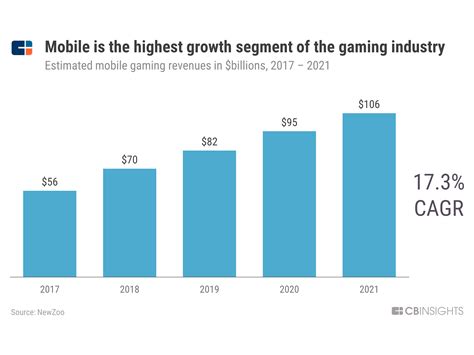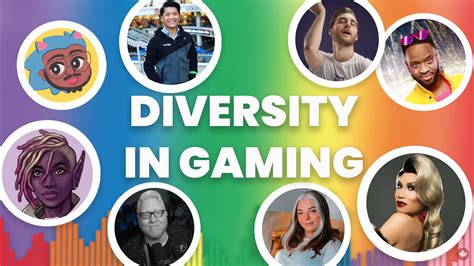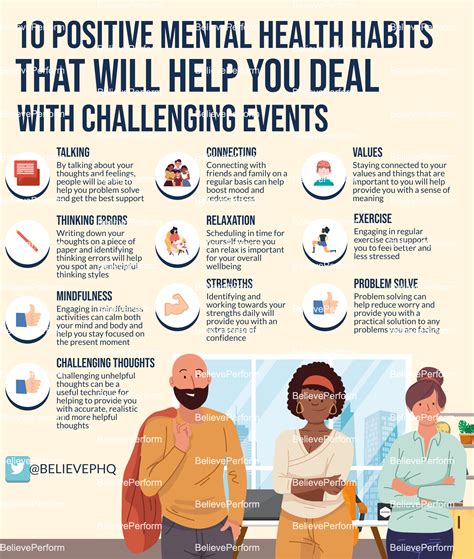Breaking News


Popular News


Explore the cultural and social impact of mobile gaming through its evolution, diversity in audience, influence on social interaction, cultural representation, positive mental health impact, and challenges.Mobile gaming has become a ubiquitous part of modern society, with millions of people around the world immersing themselves in the world of mobile gaming. As the industry continues to evolve, it is important to consider the cultural and social impact that these games have on individuals and communities. In this blog post, we will delve into the various aspects of mobile gaming, from its evolution to the diversity in its audience, and the influence it has on social interaction. We will also explore the representation of different cultures in mobile games, as well as the positive impact it can have on mental health. However, it is essential to address the challenges and controversies that come with the mobile gaming industry. Join us as we analyze the cultural and social impact of mobile gaming, and the effects it has on our modern world.
Contents

The evolution of the mobile gaming industry has been nothing short of revolutionary. When mobile phones first started gaining traction, the idea of being able to play games on them was a novelty. However, as technology advanced, so did the quality and variety of mobile games. Developers began to create more complex and immersive experiences, drawing in audiences of all ages and backgrounds.
One of the key factors in the evolution of mobile gaming has been the shift towards microtransactions and in-app purchases. These have allowed developers to offer their games for free or at a low cost, but then make money through in-game purchases. This model has led to a surge in the number of mobile games available, as developers have been able to experiment with different game styles and concepts without the financial risk of traditional game development.
Another major milestone in the industry’s evolution is the rise of cross-platform gaming. With the increasing integration of mobile devices with consoles and PCs, players are now able to enjoy the same games across different platforms. This has opened up new possibilities for game developers and has led to a more unified gaming experience for players.
The evolution of the mobile gaming industry has also brought about a greater focus on online multiplayer features, social gaming, and competitive gaming. With the widespread availability of high-speed internet and advanced networking capabilities, mobile games have become a popular platform for players to connect with each other and compete in various online communities.

Mobile gaming has grown significantly in popularity in recent years, reaching a wide and diverse audience. The diversity in the mobile gaming audience extends to not only age, gender, and ethnicity, but also to gaming preferences, locations, and socio-economic status. This diverse audience has reshaped the mobile gaming industry and has challenged developers to create games that cater to a wider range of players.
With an increasing number of women and older adults engaging in mobile gaming, the traditional stereotype of gamers being young males has been shattered. This shift in the demographic has led to a greater variety of game genres and themes, as developers strive to offer games that appeal to different interests and demographics. The inclusivity of mobile gaming has not only expanded the potential player base, but also brought people from various backgrounds together in virtual communities and social platforms within games.
The diverse audience of mobile gamers also points to the global reach and mass appeal of mobile games. Players from all over the world can connect and interact in mobile games, breaking down barriers and creating a sense of unity and understanding. The cultural representation and diversity within mobile games reflect the multicultural nature of the gaming audience, promoting inclusiveness and celebrating diversity in gaming.
In conclusion, the diversity in the mobile gaming audience has brought about a paradigm shift in the industry, leading to more varied and inclusive gaming experiences. This diversity not only reflects the changing demographics of gaming but also fosters a sense of community and inclusivity within the gaming world.

Mobile games have had a significant impact on the way people interact with each other in social settings. With the rise in popularity of multiplayer mobile games, individuals are able to connect and engage with others in a virtual environment, regardless of their physical location. This has led to the emergence of new forms of social interaction, where players can communicate, collaborate, and compete with each other in real-time.
Moreover, the social features within mobile games have also contributed to the strengthening of existing relationships. Through in-game messaging, voice chat, and social media integration, players are able to stay connected and maintain their connections with friends and family members. In addition, the ability to form or join gaming communities and guilds has further enhanced the social aspect of mobile gaming, providing opportunities for players to meet new people who share similar interests.
However, it is important to acknowledge the potential negative impact of mobile games on social interaction. Excessive gaming can lead to isolation and withdrawal from real-life social activities, resulting in strained relationships and decreased face-to-face interactions. Furthermore, the addictive nature of some mobile games may lead to compulsive behavior, affecting the overall well-being and social functioning of individuals.
Despite these challenges, the influence of mobile games on social interaction cannot be overlooked. The ability for individuals to connect, communicate, and engage with others through mobile gaming has undoubtedly shaped the way we interact in today’s digital age, blurring the lines between virtual and real-life social experiences.

Mobile games have become an integral part of our daily lives, and they have the power to influence and reflect various cultures and societies. The cultural representation in mobile games is a crucial aspect to consider, as it can shape the perceptions and attitudes of the players towards different ethnicities, traditions, and lifestyles.
The diversity of cultural representations in mobile games can enhance the overall gaming experience and promote inclusivity. By featuring characters and storylines from different cultural backgrounds, game developers can engage a wider audience and offer a more immersive and relatable gaming experience.
It is essential for game developers to conduct thorough research and consult with cultural experts to ensure an accurate and respectful portrayal of various cultures in their games. By doing so, they can avoid perpetuating stereotypes and misrepresentations, and instead, promote positive cultural exchange and understanding among players.
Furthermore, the cultural representation in mobile games can also serve as a platform for education and awareness about different cultures. Games that incorporate historical events, traditional practices, and folklore can provide players with valuable insights and knowledge about diverse cultural heritage, fostering a sense of appreciation and respect.

Mobile gaming has been making significant strides in improving the mental well-being of individuals, offering a range of games designed to reduce stress, anxiety, and depression. These games provide an escape from everyday pressures, offering a sense of achievement and entertainment that can uplift one’s mood.
Furthermore, the interactive nature of mobile games can help individuals feel a sense of connection and belonging, fostering social inclusion and reducing feelings of loneliness. Whether it’s through multiplayer games that allow players to engage in collaborative activities or through online communities and forums, mobile gaming has the potential to create a supportive and inclusive environment for individuals.
In addition, certain mobile games incorporate mindfulness and relaxation techniques, such as meditation and breathing exercises, into their gameplay, promoting stress relief and emotional regulation. This can be particularly beneficial for those struggling with mental health issues, providing them with accessible tools for managing their well-being.
Overall, the positive impact of mobile gaming on mental health extends beyond mere entertainment, offering individuals a valuable resource for relaxation, social connection, and emotional well-being.

Mobile gaming has undoubtedly become a huge industry, with millions of players around the world enjoying the convenience and entertainment of gaming on their smartphones and tablets. However, with this widespread popularity comes a number of challenges and controversies that affect both the industry and its players.
One of the biggest challenges in mobile gaming is the issue of addiction. With games designed to be easily accessible and highly engaging, many players, especially young people, find themselves spending excessive amounts of time playing. This has led to concerns about the impact of mobile gaming on mental health and overall well-being.
Another controversy in the mobile gaming industry is the use of in-game purchases and loot boxes. These features have been criticized for promoting gambling-like behavior, particularly among younger players, and have sparked debates about the ethics of these monetization practices.
Furthermore, the increasing prevalence of predatory and misleading advertising within mobile games has raised concerns about the impact on vulnerable audiences, such as children. The use of aggressive and manipulative marketing tactics has led to calls for stronger regulations to protect consumers from potentially harmful content.

What is the cultural impact of mobile gaming?
Mobile gaming has allowed people from different cultures to connect and interact through games, leading to a cultural exchange and a better understanding of each other’s customs and traditions.
How has mobile gaming affected social interactions?
Mobile gaming has provided a platform for people to bond and connect with others who share similar interests, leading to the formation of online communities and friendships.
What are the negative effects of mobile gaming on culture and society?
Excessive mobile gaming can lead to decreased physical activity and face-to-face social interactions, as well as potential addiction and negative effects on mental health.
Can mobile gaming be a tool for education and cultural awareness?
Yes, mobile gaming can be used as a tool for education by promoting cultural awareness and teaching players about different traditions, languages, and histories.
How does mobile gaming influence popular culture?
Mobile gaming has become a significant part of popular culture, influencing fashion, entertainment, and even language, with references to popular mobile games becoming prevalent in everyday conversations.
What are the ethical considerations related to mobile gaming and its impact on society?
Ethical considerations include the promotion of gambling through mobile gaming, as well as the exploitation of addictive tendencies in players, especially younger individuals.
What role does mobile gaming play in shaping the future of entertainment and social interaction?
Mobile gaming is likely to continue shaping the future of entertainment and social interaction, providing new avenues for creativity, communication, and shared experiences.